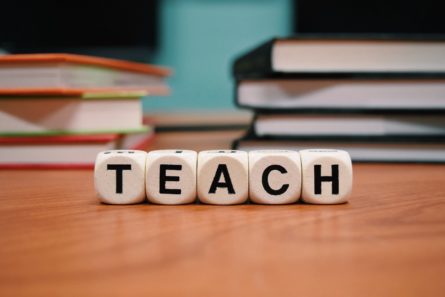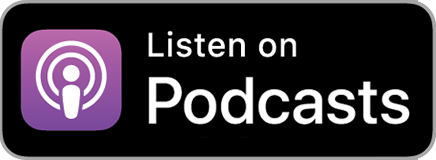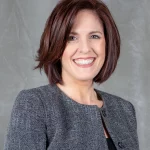Explainer Episode 42 – Unlocking Transparency in K-12 Education

Kimberly Hermann, General Counsel for Southeastern Legal Foundation and Tiffany Justice, Co-Founder of Moms for Liberty, share their insights on the interplay of parents, unions, and government regulators. In this episode, learn how “parental rights” have become a growing influence on education reform.
Transcript
Although this transcript is largely accurate, in some cases it could be incomplete or inaccurate due to inaudible passages or transcription errors.
[Music and Narration]
Introduction: Welcome to the Regulatory Transparency Project’s Fourth Branch podcast series. All expressions of opinion are those of the speaker.
Sarah Bengtsson: Hello, and welcome to the Regulatory Transparency Project’s Fourth Branch podcast. My name is Sarah Bengtsson, and I am the Associate Director of the Regulatory Transparency Project. Today, we are pleased to have with us Kimberly Hermann and Tiffany Justice to share their insights on K-12 education in America.
Kim Hermann serves as General Counsel for the Southeastern Legal Foundation. Kim advances liberty through litigation in federal and state trial and appellate courts on issues ranging from government overreach, free speech, property rights, and economic liberty. Kim is an active member of The Federalist Society, where she serves as an expert on The Federalist Society’s Regulatory Transparency Project’s State and Local Working Group.
Tiffany Justice is the cofounder of Moms for Liberty. She is a wife and mom of four school-age children. In 2016, Tiffany stepped up to serve for four years on the school district of Indian River County, Florida, School Board.
Kimberly, over to you.
Kimberly Hermann: Thanks so much for that introduction, and thank you, Tiffany, for joining us today on The Federalist Society Regulatory Transparency Project podcast. You and I have been working together for a couple of years now on this fight—The fight to save America’s schools—and I was hoping you could give our listeners just a little insight on how you, as a mom, got involved in what is now, arguably, the number one issue across America.
Tiffany Justice: Hey, Kim. Thank you for having me on the program today. In 2016, I chose to run for school board because I had four kids in public school, and I was unpacking a lot of backpacks. I got involved helping to advocate for my kid’s school. It was in a state of disrepair. There were rats in the cafeteria if that gives you any idea of the state of disrepair it was in.
And so, I went to the principal and said, “How do we advocate for this school?” And she said, “Well, we don’t really like to make waves. We don’t really — the district doesn’t like it when we ask too many questions.” And so, I said, “Well, let’s get some parents together and ask some questions.” And we did. And so, we did that, and then I thought, “You know, parents need to be more involved. Let me see if I can run for school board.” And I did. And I won, and I served for four years.
The four years, 2016-2020, ended November 2020, so I got a very up close and personal look at what COVID looked like in our public schools. And any thought or idea I had about the erosion of parental rights and my concern about parents’ involvement in their children’s education was only amplified during that time. Tina Descovich, the cofounder of Moms for Liberty, served on school board in Brevard County, Florida; I served in Indian River County, Florida. And although we didn’t know each other, when we came together after our terms ended, we had similarities and so many stories and were so concerned about the future of education because we had seen parents completely pushed out of the decision-making process for their children.
So we started Moms for Liberty in January of 2021. We do not co-parent with the government, and your parental rights do not stop at the classroom door. And so, we have spent the past two years building an army of moms and dads across the country to reclaim our public schools because, in America, they certainly have been captured. And there is no future in America with a captured public education system that continues to turn out children who are illiterate, who are being taught to be social justice warriors, and not being given practicable skills to live their lives and to fight for the survival of America, which we very much feel is under attack right now.
Kimberly Hermann: You couldn’t be more accurate when you say that those are under attack. And you guys have inspired now, what is it, 80 — 100,000 parents to join the movement. Is that what you guys are up to now?
Tiffany Justice: Yeah. We’re over 100,000 now. We’re in 44 states, with over 250 chapters of moms and dads who are just extremely concerned. And every day, more and more evidence is shown to them that their children are in danger, that the teaching in the schools is antithetical to the teaching in their home, and they’re wondering how is this happening. They’re doing great investigative work, and, really, moms and dads are the joyful warriors of our day, exposing what’s happening in our public schools and really bringing lots of different people together in coalitions across the country to fight back.
Kimberly Hermann: Yeah. When you talk about parents that are trying to really expose what’s going on in their schools — I know something that I’ve heard you talk a lot about—and that parents come to us at Southeastern Legal Foundation a lot about—is the transparency rights and the battle to even just get these documents—to get the curriculum, to get the lesson plans—so that they can actually even see what’s going on in their schools and really help fight what I’ll frequently refer to as this constitutional war that’s going on in our country.
What are some of the other legal issues that you see the parents facing a lot that they just need answers to? They need help in trying to navigate some of these bigger issues that, maybe, some of the attorneys listed in here that are members of The Federalist Society really need to be aware of?
Tiffany Justice: I think the first issue, really, is the fact that American parents needed to be reminded that their parental rights are fundamental, that these are not rights that the government gives you, and they cannot take those away, and that’s really important. So every parent has that fundamental right to direct the upbringing of their child, their education, their medical care, their moral and religious upbringing, and that’s very important to remind parents of. I would speak to parents in Oregon, Washington, California, Michigan, New York during COVID, and their fundamental parental rights were non-existent. It was almost like they didn’t even know that they had them. And so, our goal has really been setting that groundwork.
You talk about transparency — again, you have the fundamental right to direct the upbringing of your children. You can’t direct something from a reactive position, and so it’s very important, curriculum transparency. Transparency, in general, is very important because in order to direct your child’s education, you need to be aware of what they’re going to be taught in advance of that. So we very much try to help people to understand how all of these things fall under the umbrella of parental rights.
Who would have thought that American parents would be on the front lines of defense of our First Amendment? We have seen time and time again that American parents came to speak at their school board meetings and were shut down. And they were shut down in many different ways.
We had the National School Board Association go to the Department of Justice and the FBI to try to label parents as domestic terrorists for speaking up at their school board meetings. Not every time a parent’s going to come and speak at a school board meeting is it going to be all rainbows and butterflies, and our First Amendment protects that speech. And so, American parents had to be brave when their speech was — when there was an effort to chill their speech. They had to stand up. And I never thought that I would be getting questions and I’d have to go to attorneys saying, “What do our moms and dads do when the FBI knocks on their door or calls them?” And that, in fact, did happen. So that has been an issue that has happened time and time again.
I think for American parents right now, there was a period of shock. The idea that you, as a parent, living your life, paying your taxes, raising your children, being a proud American, that you, all of a sudden, would be called an enemy of the State, it’s insulting and scary. And so, I think that really has been the wake-up call. People have asked me, “What are parents concerned about? Is it the woke ideology? Is it — what, really, is it?”
I think the breaking point was when American parents came to the school board meetings, and there was an effort to keep them quiet. That was the moment that American parents got very concerned, that our moms really said, “Wow. Something is wrong here, really broken, and we need to engage a lot of people, including a lot of lawyers, to help us to fix it.”
But I’ll be honest, Kim, you and I have spoken a lot. I know it has been overwhelming for lawyers in the states. The amount of cases that we have brought to all of you and the concern — parents don’t always understand. Why is this not the best place to bring the case? Why is this not the best issue to pursue? And I think you guys have done a wonderful job and continue to. But we’re trying to help to say, “Yes, we know your rights are being violated. We know this is wrong. You need to stand up to this, but this may not be the best case to bring at the time.”
So I think that has been a real learning moment for parents across the country, that although something might be happening in their community that’s of great concern, or their child may have been hurt in some way, it may not — we may not be able to pursue it legally. There may not be justice at the end of that specific road for them. And that’s been a hard pill to swallow, I think.
Kimberly Hermann: Yeah. To that point, you and I have spoken a lot about all of these issues, and I’ve had the privilege of having some of your members share their personal stories with me, specifically about the FBI calling them. Right? These things are really happening. People don’t realize it. They think that, “Oh, maybe it’s just pundits out there talking.” This is happening on the ground.
And I’m also a parent. I’ve got a five and eight-year-old, and it scares us so much that we haven’t had the opportunity to put our kids in our local public schools. They were in a private Christian school when COVID hit, and we’ve kept them there since because it is giving us, fortunately, a level of transparency into what’s happening. But a lot of parents, even at private schools, sometimes they get less transparency even because they don’t have the local open-records laws or even the federal laws that can help them there.
And another thing that we’ve been really working to do, to your point about helping parents understand the law, is launch training series. So one of the things that we’ve really learned from you is that parents need these resources. So it’s a matter of publishing a guidebook, which we at SLF put out, and now launching a deep dive series where we — parents can understand these issues. Right? We’re dealing with parents that are in the workplace. They are professionals. They might not understand the ins and outs of the law, but when it’s presented to them, they get it, and then they know, “When do you have a case? When do you go to your school board? When do you go to a teacher? When do you go to the media?” It’s going to be a different situation for all of those things, and so we’re just really hoping that we can help provide some of those resources.
Tiffany Justice: And I think your resources have been amazing. I mean, we send — you came on the podcast that we do, and we shared it, and so many moms and dads have downloaded the SLF guide. And I just encourage that communication with lawyers and with parents and just to understand that the legal system is not something that a lot of parents have had a lot of interaction with. You think about that, even in business, it’s in a very different manner And so, one of the things I do to work to remind lawyers of when we’re working with them is how personal this is to people. This is their children. It’s the most important thing in their lives. And so, just that added layer of sensitivity and understanding is always really helpful, so we thank you for that.
Kimberly Hermann: Yeah. I mean, there’s no issue, I think, that any of us are more passionate about right now as lawyers. Right? The work we do to defend property rights, economic liberties, these are all fundamental to our country and to preserving our Constitution, but there really is just a different passion behind working to save our schools because we know that it affects our kids. This is how we are going to shape the next generation, and we’re not going to let the progressive left take them, whether it’s woke ideology, whether it’s — I don’t even call it gender identity. I call it “pretend gender” now. Right? They’re really just getting our kids to play pretend. No matter what the issue is, these are our kids, as you say, and we don’t co-parent with the government.
So to that end, a question that I’m really curious about—something that we haven’t had a chance to talk as much about—is how else are parents responding, right? We hear a lot about homeschooling, school choice, pods, and I know that you have some personal experience with this, and your members do. Can you just share with us a little bit about what you’re seeing and, maybe, what some of the challenges parents are facing as they try to help give their kids other options than just the local public school or the private school down the street?
Tiffany Justice: Yeah. I think it’s important to remember that there were many schools that were closed for years. I mean, over a year—a year and a half. I think it’s important to remember. I live in Florida. I was very lucky. I worked very hard on that school board. Governor DeSantis, July 6, 2020, said, “We’re reopening schools.” And we did that year. There were a lot of challenges in doing that, and we had a lot of different legal issues with the teacher’s union and others trying to keep schools closed. But parents had schools closed for a very long time.
Homeschool is wonderful. Not every parent has the opportunity to do that. A lot of our moms were single moms—in fact, nurses who were working on the frontlines but then had their children home trying to go to school while they had to go work. It was really incredible what a lot of moms went through during that time. And so, they were looking for other options for their children. They wanted their children to go to school. So we had moms across the country that worked to start what we call liberty schools or liberty pods, where they would find a teacher, and they would find 10-12 students and parents and bring them together, and they would pay the teacher directly to help to teach their children, so their children could continue to learn.
I’m a mom of four, 17 to 11. My daughter was 15 at the time. My goodness. The depression that I saw in her and her friends was really scary as a mom to not be able to help in that way. School was such a big part of their lives. In fact, in our house, we say it’s your only job. Right? Your only job is to go to school and focus on that. And so, to have that taken away from them — I don’t think that adults really realized how damaging that was.
So in these pods, they would come together, they would try to open in schools or other areas. And what would happen was the progressive left—the far left—they would shut them down. They would report them. They would report churches or other places and try to have permitting violations put on the books. And that was very scary and dangerous.
So we decided that it was really important—as I said before—to get that word out about fundamental parental rights. And so, on our website, momsforliberty.org, you can go to the resources and find the pledge. There’s a pledge that elected officials can take and candidates can take that say that they recognize fundamental parental rights and will work to support and enact policies that support parental rights.
But then there’s a resolution, so they can take it one step further. Because it’s interesting, Kim, in a lot of these areas, it’s not just the school board that’s making decisions about your children’s education, including, maybe, an off-site location for education, if someone’s looking at doing a micro-school. And so, we wanted to give a tool, and Will Estrada, at Parental Rights Foundation, helped us to write that resolution. There’s one for every state that you may need some different wording, so check it out. And then your town council, your county commission, you can bring everyone together in your community to understand fundamental parental rights, so they can look at the ways that they’re doing business and make sure that they’re putting parents and children first in their community. And that really is how we ensure the future of America.
Kimberly Hermann: I’m really interested in hearing a little bit more about these liberty pods and what’s going on with them now and, kind of — post COVID, I know that some schools are still shut down. Right? We saw what was happening up in DC, where you’re having to take a COVID test to come back after Thanksgiving, and there’s obviously always going to be the effort from the K-12 cartels to keep our schools closed—which is a whole other podcast and a whole other discussion for us. But where are you seeing some of these barriers now? Are those liberty pods still going on? Have they tried to actually start some of their own schools? Right? What are parents doing more than running for school board — which I know Moms for Liberty candidates were just unbelievably successful and swept the school boards across the country this past November. But what are they doing now?
Tiffany Justice: We had great results from school board elections. We endorsed in over 500 races. We’re actually over the 50 percent mark now for our races. We had California results come in, and we had great wins in California. So while you may not have seen what you wanted to see at the federal or state level in elections, from the ground level—the local level—we saw great wins and successes. And so, in Florida, our win rate was 80 percent. This is how you change the future of education in America—by going in locally, getting involved in the actual institution in this way, so your voice can be heard, representing constituents.
Parents are trying to do a lot of different things. They’re trying to start micro-schools. They still have a lot of barriers in their communities to do that. They’ve looked at private schools, but as you said, a lot of our private schools have been captured as well. I think it’s important for us to recognize that we have to be vigilant wherever our children are going to school.
Parents, right now, recognize that our education system has been captured. I want to be clear about what needs to happen going forward. Micro-schools, homeschooling, private schools, all very, very important; however, without reclaiming public education in America, America is doomed to fail. And I say that with a lot of honesty because it’s hard to hear, I know. We’ve worked in the school-choice space as conservatives for a very long time, but what we find ourselves, right now, in a position is that we’re not supporting the marketplace in the way that our parents believe that they need to. Every day, I am hearing about different groups that are investing in charter schools and other types of education freedom, like BlackRock, for example—eight charter schools in South Carolina, charter schools in Arizona as well—holding the debt for those schools. This should be very concerning to everyone.
So as we move forward, we’re creating school choice options, which is wonderful. Education freedom hinges on an informed parent. We believe informed parents are the key to moving our country forward, but we must work to support the marketplace. And so, that’s really what we’re trying to do right now to ensure that there’s education freedom but that it happens in a way that we feel good about and feel comfortable about because, again, parents should not be worried that every time they send their child to school, the teaching in the school is antithetical to the teaching in the home.
Kimberly Hermann: Yeah, and even with the parents that have great intentions, like you said, when you’ve got funders behind some of these schools that, maybe, don’t have the best of intentions across the country, it’s inevitably going to seep into the curriculum eventually, into the hiring process. All you need, from what I’ve seen, is one key person in administration to change an entire school. I’ve seen private schools that have been around for decades that parents have gone to as options—Christian-based, faith-based private schools, where they didn’t think they were ever going to have to worry about this—and they’ve been kicked out because they raised the red flag and they raised issues to the school and to the trustees, and they said, “If you don’t like it, get out. This is where the school’s heading.” And it’s been really disheartening.
But what is really giving all of us hope is that parents are out there and fighting and being aware. And if you need to leave, then leave, and there are other options. One last question for you. When we talk about public schools and that we can’t just leave them aside — and I agree with you 110 percent. If we don’t take back our public schools where the majority of our kids are getting their education, this country is going to be doomed. Where do we start there? And I don’t mean by running for school board or getting the documents. Where can we actually start making the change? Is it in the curriculum? Is it in extracurricular activities? Where is it that we can have the biggest impact?
Tiffany Justice: It’s in getting back — it’s in parents getting back into the schools. We need parents back in the schools every single day. And it’s really sad because PTA in some schools does great things, but national PTA—TikTok just put out a big campaign about supporting PTA—like many other associations that we’ve seen across the country, is captured. And so, we need to be very honest about that.
So parents need to get back involved in their schools. This nonsense would not be happening if there were parents in every single classroom. It just wouldn’t. And so, schools have worked very hard to keep us out. They used COVID as an excuse to keep us out. In New York City public schools, parents still can’t come in and see their children’s schools. And so, I really think that’s the baseline; that’s where we start. Run for school board. Support candidates that are running for school board so they can work to enact policies that help to increase parental engagement.
Parents are the number one driver of student success. Not every child has a parent that is engaged and involved in their education, and I wish that every child did, but that doesn’t mean that parents shouldn’t be welcomed and involved in schools. And I know, Kim—and maybe from your experience—from my experience as a school board member and a mom, oftentimes when I went into the classroom to help to volunteer, I wasn’t working with my own child. I may have been working with someone else’s child on reading or math, and so Hillary Clinton’s idea of it takes a village really does take a village.
Schools can’t do this alone. I’m not a big Hillary Clinton fan, but she wasn’t wrong about some of that. Right? We have to get involved and have our voices heard and be there to be stewards of our schools and to protect the innocence of children. Because truly, when we strip everything back, that is what is under attack. It’s about time that we have a very serious conversation in America about age appropriateness. We all have held this collectively to be true. There are ratings on movies on video games. We have all worked in a fashion in our lives that children are not adults and vice versa, and yet, somehow, in our schools, this line is being blurred intentionally.
So again, the best thing that parents can do is volunteer and get back into schools. Maybe substitute teach if you have the time. Get in there, and make it very, very hard for a lot of this nonsense to continue going on. I think it’s only gotten to this point because we had been pushed out, and it’s time to push our way back in.
Kimberly Hermann: Yeah. And what you see when you’re in that classroom — I mean, I’m President of my kids’ school PTA, and it’s a pre-K-12 school, so there’s a lot that falls under our umbrella, and the opportunities that it’s afforded me have just been amazing—being in the classroom, getting to know the teachers at all levels, whether it’s a high school teacher that they may have in the future, a high school teacher that’s teaching there that taught me back when I was in high school 25 years ago and reconnecting with them, who was teaching American History in an amazing way that we would all love to be taught this way throughout the entire country.
But what you see when you’re in the classroom—getting to know the kids, getting to know the teachers—it’s invaluable, and I understand not all parents can do that. Right? We all have jobs, and we’re all working also. But even if it’s just a class party and you get to see the posters that are on the wall, you see whether your kid has an American flag or a BLM or LGBTQIA flag in the room, that they’re asking to be pledged allegiance to, it matters.
Tiffany Justice: It does matter, and the other thing that I think, what you just said, that’s so important is building relationships. It’s building relationships with teachers. The one message that I will send to anyone listening is not all teachers are bought into this. They are scared. They cannot always speak out. There is a lot of pressure within the school system or within the school for teachers to not speak out against a lot of the things that are happening. And the more parents that can stand by the side of teachers, that can develop those relationships that are based on trust and what is best for kids, the faster we can turn this ship around, and so, really getting in and creating those relationships and reminding everyone.
We talk to a lot of people that have very important jobs. Right? They do lots of different things, oftentimes outside of where they live—in Washington or across the country at their state capitol—but the truth is that not only do you have to do that work now, but people like you, people like me, you have to go back in and work even in your own community as well. Because your communities need you to help to be leaders, to help to grow the capacity for leadership. And I just remind everyone, don’t forget about your hometown because your hometown needs you, too.
Kimberly Hermann: Yeah. And your point about the teachers being allies also and that they don’t all want this, they really don’t. Right? We have several lawsuits here where we represent teachers. They were the ones to stand up and actually bring the lawsuits first—before parents were able to—because they had been seeing it for years, and it wasn’t new to them. They just now — when they have groups like yours, Moms for Liberty, and they know that they have them behind them, they were then willing to and wanted to go stand up for the students.
So how do people find you, how do they become a member, and how can they learn more about Moms for Liberty?
Tiffany Justice: You can go to momsforliberty.org. There’s a big map there. Click on the state that you live in, and you’ll be able to see the chapters that are in your state. If we don’t have a chapter in your state, click the button to start a chapter and start going through that process, and see if it’s for you. You need to have ten like-minded friends to start a chapter. No one can do this alone, but it’s a first step, and chapters do their work in lots of different ways. Not just moms. We have dads and grandparents, community members, aunts and uncles. It really is going to take all of us. Everyone has a role to play here. So click to start a chapter.
You can follow us on social media, on Facebook, on Twitter, on Instagram, not on TikTok—not a big fan of TikTok—but on lots of other different social media sites. And we just ask that if you have questions, reach out. Or reach out to a chapter in your state, and ask them a little bit about the work that they’re doing and what’s involved, and see if, maybe, it’s something you might be interested in doing. Our chapters are really run by amazing men and women who very much care about this country and care about children.
Kimberly Hermann: Yeah. I mean, the work you guys are doing is amazing, and I really can’t stress to any parents out there—any, even non-parents and attorneys who are listening to this, who are interested in helping with the fight—check out the Moms for Liberty website. You can check out our website, Southeastern Legal Foundation; it’s slfliberty.org. We have some resources there also, and we really try to work hand-in-hand with Moms for Liberty. They are the soldiers on the ground in this fight, and we appreciate you coming in today, Tiffany, to tell us a little bit more about your organization, the fight, and some of the legal issues that you all are facing that we can hopefully help with in the future.
Tiffany Justice: Thank you for giving me the opportunity to be able to celebrate the joyful warriors on the ground because they truly are amazing men and women.
Kimberly Hermann: Thanks, Tiffany. And thanks to our listeners.
Sarah Bengtsson: Thank you, Kim and Tiffany, for sharing your time and your insights with us today. You can find more of our content on our website at regproject.org or follow us on any major social media platform @fedsocrtp to stay up to date.
[Music]
Conclusion: On behalf of The Federalist Society’s Regulatory Transparency Project, thanks for tuning in to the Fourth Branch podcast. To catch every new episode when it’s released, you can subscribe on Apple Podcasts, Google Play, and Spreaker. For the latest from RTP, please visit our website at www.regproject.org.
[Music]
This has been a FedSoc audio production.

Speakers
Topic
The Federalist Society and Regulatory Transparency Project take no position on particular legal or public policy matters. All expressions of opinion are those of the speaker(s). To join the debate, please email us at [email protected].









